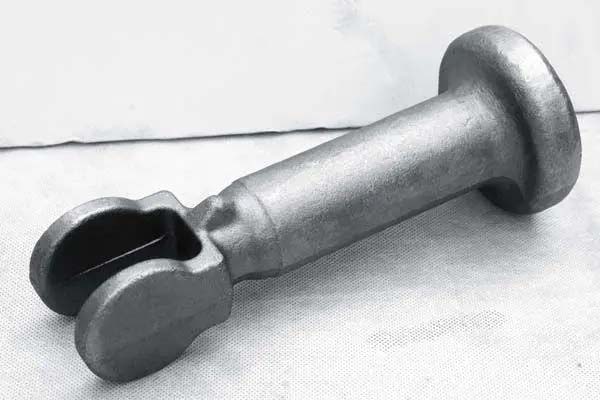- Contact Innally, Let you purchase forgings in China more favorable prices, products more assured!
- Hotline:+(86)15038323776 Email:innally@innally.com
Drive shaft forging: Choose the right material and process transmission
- Category: Metal forging, Steel forgings
- |
- Date: 14/09/2023
the correct selection of the material and process of the drive shaft forging is of great significance to its performance and service life. When selecting drive shaft forgings, factors such as use requirements, material type, manufacturing process, accuracy level and maintenance use should be considered comprehensively to ensure that it can meet your needs and achieve the best use effect.
Product Details
Shaft forgings play a vital role in a variety of mechanical equipment, not only to withstand huge torque and impact loads, but also to ensure rotation accuracy and stability. Therefore, the correct selection of the material and process of the drive shaft forging is of great significance to its performance and service life. This article will discuss the types and applications of drive shaft forging materials, as well as aspects of manufacturing process flow, manufacturing accuracy, service life and use recommendations to help you choose the right materials and processes to meet your needs.
There are many kinds of transmission shaft forging materials, including carbon steel, alloy steel, stainless steel and aluminum alloy. Among them, carbon steel and alloy steel have higher strength and hardness, suitable for bearing large loads of drive shafts, such as automotive drive shafts and industrial gearboxes. Stainless steel has better corrosion resistance and high temperature properties, suitable for outdoor or corrosive environment of the drive shaft. The aluminum alloy has a relatively light weight and good processing performance, which is suitable for the transmission shaft with high weight requirements, such as the aero engine and the racing car transmission shaft.

The manufacturing process of drive shaft forging includes forging, heat treatment and surface treatment. Forging is the first step to manufacture drive shaft forgings. Through high temperature and high pressure forging treatment, material density can be increased and mechanical properties can be improved. The heat treatment is to further strengthen the material and improve its hardness and strength to meet the high load requirements of the drive shaft forging. The surface treatment can prevent rust and wear and improve the service life of the drive shaft forgings.
The manufacturing accuracy of the drive shaft forging also has an important impact on its performance and service life. In general, high-precision drive shaft forgings have higher rotation accuracy and stability, which can reduce vibration and noise. Therefore, when choosing the drive shaft forging, you should consider whether its accuracy level meets your needs. In general, the accuracy level of the drive shaft forging can be divided into ordinary grade, advanced and special grade, and the accuracy requirements corresponding to different grades are also different.
The service life of drive shaft forgings is affected by many factors, such as material quality, manufacturing process, use environment and use mode. The correct selection of materials and processes can significantly increase the service life of drive shaft forgings. For example, the selection of high-strength alloy steel can increase its load carrying capacity, the selection of stainless steel can prevent corrosion, and the selection of aluminum alloy can reduce weight, thereby reducing rotary inertia and energy consumption. In addition, the correct heat treatment and surface treatment can also improve the service life of the drive shaft forgings.
In terms of the correct selection of the material and process of the drive shaft forging, we make the following recommendations:
Choose the right material according to the use requirements: For different use environments and requirements, it is crucial to choose the right material. For example, for high-load transmission shafts, high-strength carbon steel or alloy steel should be selected; For corrosive environments, stainless steel should be selected; For the transmission shaft with high lightweight demand, aluminum alloy should be selected.
Use advanced manufacturing processes: manufacturing processes have a great impact on the performance and service life of drive shaft forgings. Therefore, manufacturers with advanced technology and experience should be selected to ensure the high quality and reliability of the drive shaft forgings.
Consider the accuracy level: The accuracy level of the drive shaft forging has a great impact on its performance and service life. When selecting the drive shaft forging, whether its accuracy level meets the requirements should be considered according to the actual needs.
Pay attention to maintenance and use: Proper maintenance and use can extend the service life of the drive shaft forging. Therefore, users should follow the instructions to regularly check and maintain the drive shaft forgings to ensure their normal operation.
In short, the correct selection of the material and process of the drive shaft forging is of great significance to its performance and service life. When selecting drive shaft forgings, factors such as use requirements, material type, manufacturing process, accuracy level and maintenance use should be considered comprehensively to ensure that it can meet your needs and achieve the best use effect.
nannan
INNALLY mainly provides you with various types of cast and forged parts products. Welcome your inquiries! innally@innally.com
Related Products
Search
Forging center
- Steel forgings
- Aluminium alloy forging
- Titanium alloy forging
- Stainless steel forging
- Copper forging
- Automotive forgings
- Locomotive forging
- Bicycle forgings
- Motorcycle forging
- Rigging and fasteners
- Bearing forging
- Electric power fittings
- Marine forging
- Mechanical forgings for metalworking
- Mining machinery forgings
- Marine engineering forgings
- Construction machinery forgings
Popular product

© 2025. All Rights Reserved.






